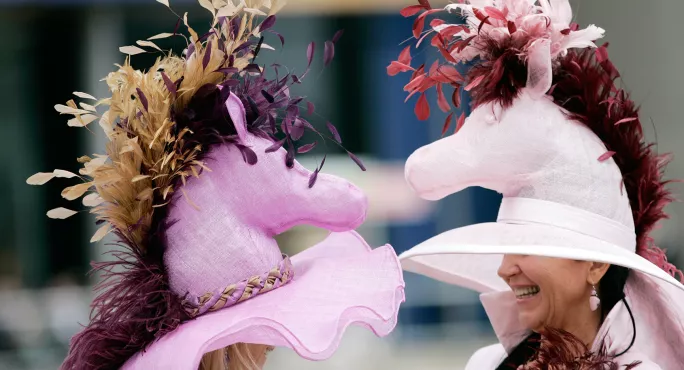AI ‘threat’ sparks SQA reminder of ‘serious’ penalties for plagiarism

Scotland’s exam body has written to schools acknowledging that artificial intelligence could be used to generate coursework including essays, dissertations and presentations - which often count towards students’ final grades.
The Scottish Qualifications Authority has told teachers and lecturers they “must ensure that learners understand what constitutes malpractice and the potential consequence of copying or misusing technology” - including that they “risk serious penalty” and could ultimately fail the course.
The body also says that teachers and lecturers have a key role to play in ensuring that students’ work is their own and not generated by AI.
- Background: Teacher assessment ‘impossible’ amid ChatGPT rise
- Related: IB students can use ChatGPT in essays
- Analysis: How teachers - and SQA examiners - can embrace ChatGPT
- School leaders’ view: Why the rise of ChatGPT should liberate education, not scare it
The SQA says in the email that school and college staff are “vital in identifying evidence that does not appear to have been produced by that learner” because they become familiar with their students’ work “over time” and will be aware of work that is “in part or in full, uncharacteristic of their typical style or standard of work”.
In a statement, the SQA told Tes Scotland it has also issued guidance to its principal assessors - who lead marking teams for different subject areas - on “what to be vigilant for in coursework that potentially could include AI-generated responses”.
It said this included American spelling, conventions, grammar and “vocabulary that is out of step with the level of the course, or qualification level the candidate is working at”.
In addition, the SQA said it had “asked that assessors are vigilant of a lack of direct quotations, or incorrectly attributed or referenced sources where we would normally expect to see them”.
In recent months, concerns have been raised about the impact AI could have on the coursework element of Scottish qualifications - which for Higher English is worth 30 per cent of the final grade - given that ChatGPT has been shown to produce coherent answers to the kinds of questions that form the basis of some assignments in a matter of seconds.
In a letter to the Scottish Parliament’s Education, Children and Young People Committee - dated 12 February but only published this week - the Commission on School Reform said that former headteacher and English teacher Frank Lennon had used ChatGPT to produce a sonnet - one of the assessment choices for National 5 English - and it was “of a standard which he felt could be awarded good marks”.
The letter concludes: “There is a lot of good that the AI can also be used for, but the SQA also needs to be aware of the potential for abuse and we hope that it is being addressed by the SQA and the Hayward review.”
The interim report of the independent review of assessment and qualifications, being led by Professor Louise Hayward, was published in March and called for a “significant reduction in external assessment, including examinations” and “a wider range of assessment approaches” - but it did not address the potential impact of AI on this rebalancing. The final stage of consultation for the Hayward review finishes on Sunday 30 April, with the final report due towards the end of May.
MSPs on the parliamentary committee have now written to education secretary Jenny Gilruth for the Scottish government’s view on such issues.
In the SQA communication - which went out to all schools and colleges delivering SQA qualifications on 6 February - the body says that plagiarism is “a longstanding issue” but “rare”.
The SQA also says that many assessments “are conducted under conditions that prevent the use of such online tools” and have “checkpoints built into assessment approaches that enable teachers and lecturers to identify work that may not be authentic”.
However, it also says it is working with a supplier of plagiarism detection software “to ensure that we are equipped to identify work that is not the learners’ own”.
And it highlights what schools and colleges can do to “help reduce the potential use or risk of AI-generated responses”, including:
- Inform learners about the ethics of submitting work that is not their own and how this affects their learning and the value of their qualifications.
- Communicate with learners about malpractice and the potential consequences of submitting work that isn’t their own.
- Remind learners about signing the flyleaf that accompanies any coursework submitted to SQA and what this declaration means.
- Ensure the conditions of assessment are correctly adhered to.
- Be alert to work submitted by learners that is, in part or in full, uncharacteristic of their typical style or standard of work.
- Monitor learner progress when drafting submissions through progress checklists or spot checks and/or asking the learner about the work they have submitted.
- Review centre internal policy and processes and update where necessary.
You need a Tes subscription to read this article
Subscribe now to read this article and get other subscriber-only content:
- Unlimited access to all Tes magazine content
- Exclusive subscriber-only stories
- Award-winning email newsletters
Already a subscriber? Log in
You need a subscription to read this article
Subscribe now to read this article and get other subscriber-only content, including:
- Unlimited access to all Tes magazine content
- Exclusive subscriber-only stories
- Award-winning email newsletters
topics in this article



